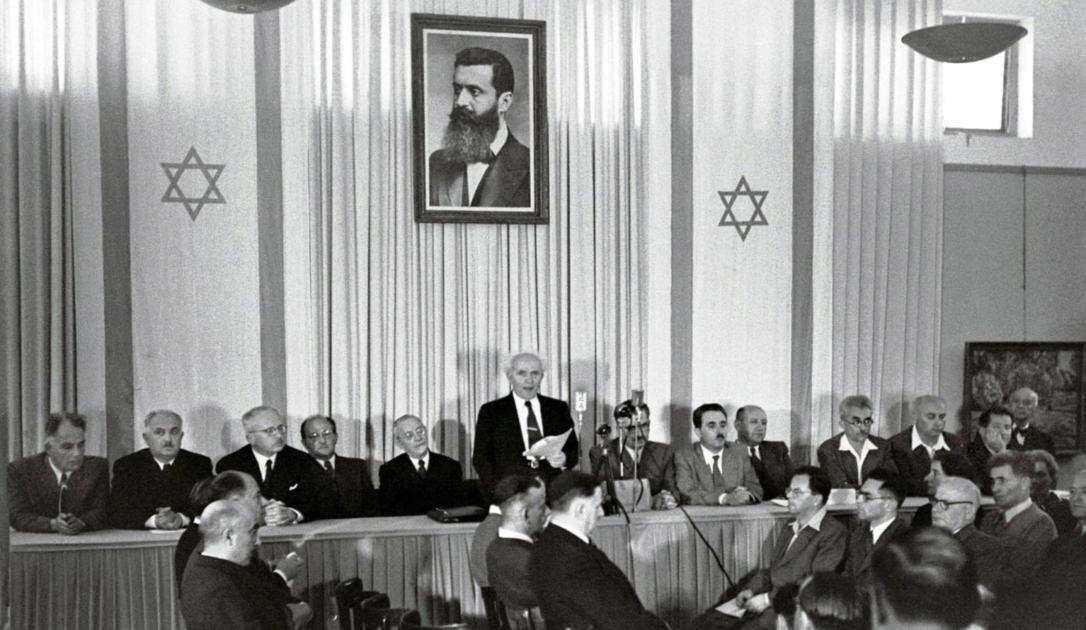May 14th marks a day rich with historical events that have shaped the world we live in today. From political revolutions to scientific breakthroughs, this date has witnessed a plethora of impactful occurrences spanning centuries. In this comprehensive exploration, we delve into the annals of history to uncover the notable events that occurred on May 14th throughout the ages.
The Establishment of the State of Israel (1948)
One of the most significant events in modern history occurred on May 14, 1948, with the establishment of the State of Israel. After decades of Zionist efforts and in the aftermath of World War II and the Holocaust, David Ben-Gurion, the head of the Jewish Agency, declared the establishment of the independent Jewish state of Israel. This declaration marked the culmination of years of struggle for Jewish autonomy in the land of their ancestors. However, it also ignited a protracted conflict with the Arab states in the region, leading to decades of tension and warfare.
Lewis and Clark Expedition Reaches the Pacific Ocean (1804)
On May 14, 1804, the historic Lewis and Clark Expedition reached the Pacific Ocean, a milestone in their journey to explore and map the newly acquired territory of the Louisiana Purchase. Led by Meriwether Lewis and William Clark, the expedition had set out from St. Louis in 1804 with the directive from President Thomas Jefferson to explore the western lands of the continent. Their successful arrival at the Pacific coast not only facilitated greater understanding of the geography and resources of the region but also paved the way for westward expansion and the eventual settlement of the American frontier.
The Declaration of Independence of Estonia (1919)
May 14, 1919, marked a pivotal moment in the history of Estonia with the adoption of the Declaration of Independence. Following the chaos of World War I and the collapse of the Russian Empire, Estonia seized the opportunity to assert its national sovereignty and break away from foreign domination. The declaration affirmed the rights of the Estonian people to self-determination and laid the groundwork for the establishment of an independent Estonian state. Despite subsequent challenges, including occupation by Soviet and Nazi forces, Estonia ultimately regained its independence in 1991 following the dissolution of the Soviet Union.
End of Apartheid in South Africa (1994)
May 14, 1994, heralded the end of apartheid and the dawn of a new era of democracy in South Africa. On this day, Nelson Mandela was inaugurated as the first black president of the country, marking the culmination of years of struggle against racial segregation and oppression. Mandela’s election symbolized the triumph of hope and reconciliation over division and hatred, ushering in an era of healing and nation-building. The end of apartheid not only transformed South Africa but also inspired movements for justice and equality around the world.
The Birth of George Lucas (1944)
On May 14, 1944, the renowned filmmaker George Lucas was born in Modesto, California. Lucas would go on to become one of the most influential figures in the history of cinema, creating iconic films such as the “Star Wars” and “Indiana Jones” franchises. His groundbreaking work in visual effects and storytelling revolutionized the film industry and inspired generations of filmmakers and audiences alike. Lucas’s impact extends beyond the realm of entertainment, as his innovative techniques and imaginative storytelling continue to shape popular culture and ignite the imaginations of millions worldwide.
The Berlin Blockade Begins (1948)
One of the opening salvos of the Cold War commenced on May 14, 1948, with the onset of the Berlin Blockade. In response to the introduction of a new currency in West Berlin by the Western Allies, the Soviet Union imposed a blockade on all land and water routes to the city, effectively cutting off its access to essential supplies. The blockade precipitated a dramatic standoff between the Western powers and the Soviet Union, culminating in the Berlin Airlift, a massive humanitarian effort to supply the besieged city by air. The Berlin Blockade heightened tensions between East and West and foreshadowed the geopolitical struggles that would define the Cold War era.
Conclusion
May 14th stands as a testament to the diverse tapestry of human history, encompassing triumphs and tribulations, breakthroughs and setbacks. From the establishment of nations to the exploration of new frontiers, this date has borne witness to a myriad of significant events that have shaped the course of civilization. As we reflect on the events of May 14th, we gain a deeper appreciation for the forces that have shaped our world and a renewed sense of the importance of understanding and commemorating our shared history.

